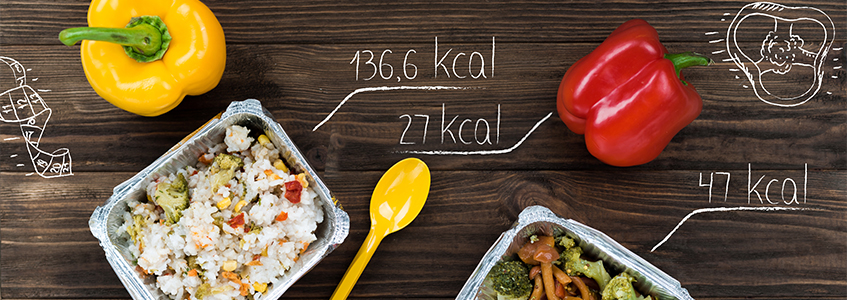19 November 2021

Not all calories are the same!
If you spend the day counting the calories you eat, this post is for you!
What is a calorie?
The feared calories are the energy that food provides to the body when it is digested. The energy contained in them comes from macronutrients (carbohydrates, proteins, fats) and ethyl alcohol, contained in alcoholic beverages. The micronutrients that are mineral salts and vitamins are not sources of energy.
They are distributed as follows:
- Carbohydrates: 4 kcal per gram
- Proteins: 4 kcal per gram
- Fats: 9 kcal per gram
- Alcohol: 7 kcal per gram
In a food plan intending to lose weight, the method of counting calories is very common. Weight loss occurs when a negative energy balance is achieved. That is when energy intake is less than energy expenditure. A recent study, published in Obesity Review, brought together a team of 22 researchers and looked deeply into the issue. They concluded that it is necessary to look further: towards the source and not the number. In other words, eating 100 calories of crackers and 100 calories of fruit is clearly not going to be the same thing. A muffin and a bowl of soup can also have the same number of calories, but they definitely won’t have the same nutritional value.
Not all calories are the same!
It is not the counting of calories that matters, but rather the composition of each food is what makes the body work. Unlike energy expenditure, consuming excess calories lead to fat accumulation, obesity and cardiovascular diseases. Yet, various elements or even more calories can promote obesity and cardiovascular disease due to several mechanisms that are not only treated by the caloric content. The risk of developing related diseases can also be increased by excessive consumption of soft drinks, refined sugars, or trans fats since these types of foods promote weight gain and fat accumulation.
Briefly saying, we can consume the same number of calories from a sugary soda or yoghurt, but the calories from the soda may increase our risk of some diseases, while the ones from the yogurt may reduce it. The same can be said about foods with similar fat content. It is not the same thing to eat the same amount of fat in chia seeds or walnuts (polyunsaturated fat) and crackers (trans fat).The first reduces the risk of disease, the second increases it.
Furthermore, Let’s look at calories from protein foods, such as egg whites, meat, fish. These are hardly used by the body for immediate energy production, hence their thermogenic effect. While the same number of calories from carbohydrates promotes, in a short period of time, the use of this source as energy for our body. When we don't use it, it accumulates in the form of fat.
Fewer Calories ≠ Healthy Diet
Eating less does not always lead to fat loss. Mostly often it just slows down the metabolism. The ideal is to have food re-education, learn to eat better, especially nutritious foods that provide greater satiety and more vitality and health:
- Exclude processed foods, even light ones, and opt for foods in their most natural form;
- Exclude carbohydrates with high and medium glycaemic load such as cookies, snacks, sweets, sweeteners, processed foods in general;
- Exclude alcoholic beverages (empty calories);
- Increase your protein intake - guarantee you more satiety;
- Increase the consumption of mono- and polyunsaturated fats: olive oil, high-fat fish such as salmon, tuna, mackerel, chia seeds, flaxseed, nuts, avocado;
- Have a regular intake of seasonal fruit and vegetables.
Before thinking about calories, listen to your body!



